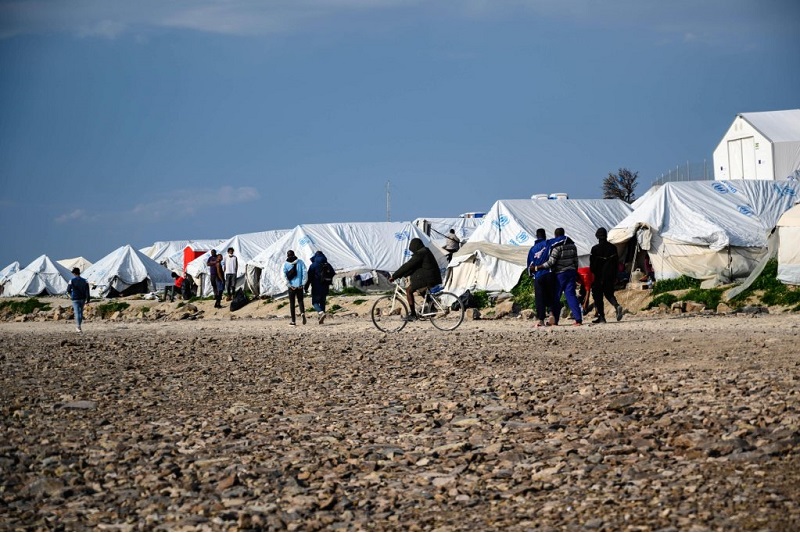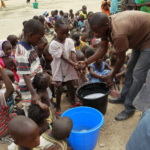
ecj awards damages to migrants over inhumane treatment in greek refugee camp
The 67 refugees who complained to the European Court of Justice (ECJ) about the cruel treatment they received at a refugee camp on the Greek island of Lesbos in 2017 and 2018 received a favourable decision recently. They received €5,000 from the court as “moral damages” compensation and an additional €1,000 to cover court fees. The ECJ’s historic ruling has highlighted the appalling conditions that asylum seekers must endure and has demanded immediate changes in how migrants are treated in Greece.
The Strasbourg-based court harshly criticised Greece for holding asylum seekers in inhumane and degrading conditions. The court found the treatment intolerable due to the congestion, a lack of basic supplies, and other issues. The world was made aware of the now-defunct Moria reception centre’s circumstances, frequently referred to as “hell on earth” through media accounts.
Expert in human rights and criminology Vassilis Cheirdaris emphasised Greece’s need to alter its attitudes and behaviour towards refugees. He criticised the disregard for human life and its undervaluation and demanded that such actions face legal repercussions. The decision serves as a reminder that all people should be treated with dignity and that modern legal systems should not allow such abuse.
According to the migrants’ claims, they were kept in a 40 square metre outdoor ‘cage’ as soon as they arrived at the receiving centre. They only received one sandwich and a bottle of water per day for food and drink. Without beds or covers, they were made to sleep on the floor. Later, they were relocated to summer tents, which provided insufficient shelter from inclement weather and left the grounds muddy and waterlogged. There were just 40 minutes a day of running water available.
Keep Reading
Before the ECJ decision, there was already cause for worry about the conditions in the Moria camp. The camp was extremely overcrowded, hosting more than 7,200 people by June 2017 and approaching three times its capacity with 9,000 people a year later. The centre was initially intended to hold a maximum of 3,100 people. The Moria camp was ultimately abandoned after terrible flames in 2020.
Sadly, NGOs have expressed worries over tales of migrant mistreatment in the new Closed and Controlled Reception Centre, which was built to take the place of Moria. Recently, an NGO brought attention to the fact that 300 people who were deemed to be outside the asylum process were being denied food and water by the Greek government. NGOs emphasise that access to food and water is a fundamental human right that must be respected regardless of legal status.
The ECJ’s decision favouring the 67 refugees represents a significant advancement in the fight against Greece’s cruel treatment of asylum seekers. It draws attention to the demand for better housing, sufficient resources, and observance of human rights in refugee camps. The judgement should act as a catalyst for reform, pressing authorities to give migrants’ dignity and welfare a top priority and making sure that future instances of mistreatment are prevented.









